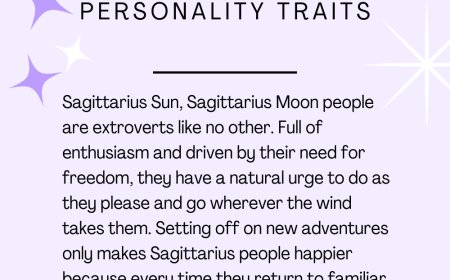I Loathe My Husband: Relationship Struggles & How to Cope

In contemporary discourse regarding marital relationships, it is not unusual for individuals to experience periods of intense emotional distress, culminating in feelings of loathing or resentment towards their partners. These complex sentiments are often multifaceted and are influenced by a range of psychological, social, and relational dynamics. Through this exploration, one might gain insights into the elements that contribute to such profound feelings, and the subsequent stratagems that may facilitate a reconceptualization of the marital union.
It is imperative to recognize that these emotional responses are rarely rooted in a singular event; rather, they stem from a tapestry of interactions and experiences over time. The challenge lies in discerning the underlying causes of dissatisfaction while employing effective coping mechanisms to address these challenges.
Understanding Emotional Detachment in Relationships
The phenomenon of emotional detachment may manifest as a symptom of various relational dysfunctions. Interestingly, feelings of loathing often arise from unmet expectations or perceived betrayals. When partners drift apart or fail to communicate effectively, feelings of resentment may emerge. A sense of disillusionment often develops when once cherished attributes become sources of irritation. The habitual neglect of emotional intimacy can lead to a desolate relational landscape.
Unpacking the Layers of Discontent
To navigate this emotional quagmire, it is crucial to dissect the root causes of discontent. An examination of relationship dynamics is paramount. Individuals may find themselves entangled in harsh cycles of negativity, wherein minor grievances escalate disproportionately. This escalation can often stem from unresolved conflicts, leading to a toxic feedback loop where both partners become entrenched in their resentments.
Additionally, it is vital to consider the impact of external stressors—such as work-related pressures or familial obligations—that may exacerbate emotional strain within the relationship. External challenges can siphon emotional reserves, leaving individuals with scant capacity to engage with their partner constructively. The resultant frustration may manifest as antagonism towards the spouse, particularly if that person is perceived as a daily reminder of one’s unfulfilled longings or inadequacies.
Shifting Perspectives: Reframing Relationship Narratives
Engaging in cognitive restructuring may serve as a pivotal strategy in addressing feelings of loathing. This psychological technique encourages individuals to challenge their entrenched negative beliefs about their spouse and the relationship itself. By fostering a habit of gratitude and recognizing shared experiences, couples may begin to reframe their narratives to highlight resilience and connection, rather than discord and resentment.
This process necessitates a conscious effort to focus on the strengths of the partnership. Each partner should endeavor to identify moments of camaraderie or shared joy that may have become overshadowed by recent grievances. Engaging in reflective practices, such as journaling about positive experiences or expressing appreciation through verbal affirmations, can bolster emotional connection and engender a greater sense of harmony.
Strategies for Effective Communication and Conflict Resolution
Effective communication stands as a cornerstone of any relationship. The ability to articulate grievances, while remaining open to the partner’s perspective, is essential in mitigating feelings of loathing. Couples may benefit from establishing ground rules for discussions, including refraining from personal attacks and focusing on “I” statements that express feelings rather than accusations.
Moreover, the implementation of structured conflict resolution techniques can diminish animosity. Techniques such as active listening—where one partner fully engages with the other’s concerns before responding—promote mutual understanding and respect. When both partners feel heard, the likelihood of successful conflict resolution increases significantly, thereby reducing the breeding ground for resentment.
Engaging in Joint Activities for Connection
Amidst feeling disconnected, couples may find solace in recommitting to shared ventures. Engaging in enjoyable activities together can rekindle a sense of companionship and foster positive interactions. Such activities do not necessitate grand gestures; small, intentional actions—such as participating in a hobby, hosting regular date nights, or simply enjoying a leisurely walk—can recalibrate the relationship and ignite renewed affection.
The Role of Individual Self-Reflection
Intriguingly, the journey towards resolving feelings of loathing may necessitate individual introspection. Partners should endeavor to explore their emotional landscapes and identify personal triggers that contribute to their perceptions of the relationship. Understanding one’s own emotional responses—through methods like mindfulness, therapy, or self-help literature—can yield valuable insights into how these feelings influence relational dynamics.
Moreover, this reflection may foster the development of greater empathy towards the partner. Recognizing one's own shortcomings can quell the instinct to cast blame and promote a more supportive environment where both individuals can thrive. Such an approach encourages personal accountability and reinforces the notion that relationships are reciprocal; each partner plays a role in nurturing or undermining the union.
Seeking Professional Help as a Viable Option
In situations where feelings of loathing towards a partner become overwhelming, seeking the assistance of a licensed therapist or counselor could provide invaluable support. Professional guidance may offer techniques to navigate interpersonal conflicts and facilitate a healthier dialogue. Therapy can also serve as a space for individuals to articulate their emotions without fear of judgment, ultimately fostering deeper insights into their relationship’s dynamics.
Acknowledging the Reality of Relationship Struggles
It is essential to acknowledge that discontent in relationships is a universal experience. Feeling loathing towards one’s spouse does not necessarily indicate the absence of love, but rather represents a signal that certain aspects of the relationship require attention. Recognizing these feelings as valid opens the door to exploration, healing, and potential revitalization of the partnership.
Adopting a Multifaceted Approach to Regaining Affection
To surmount the challenges associated with feelings of loathing, one must adopt a holistic approach that encompasses emotional, cognitive, and behavioral dimensions. The integration of effective communication, self-reflection, and shared experiences may provide the framework necessary for rebuilding a resilient relationship. Furthermore, a commitment to mutual growth can invigorate a stagnant partnership into a vibrant and supportive alliance.
In closing, while the journey may be fraught with difficulties, it holds the potential for profound transformation. By confronting feelings of loathing with curiosity rather than condemnation, partners may embark on a path towards reconciliation and renewed emotional intimacy. The requisite shifts in perspective are indeed formidable yet can lead to a rejuvenating experience that fortifies the marital bond.
What's Your Reaction?
 Like
0
Like
0
 Dislike
0
Dislike
0
 Love
0
Love
0
 Funny
0
Funny
0
 Angry
0
Angry
0
 Sad
0
Sad
0
 Wow
0
Wow
0









:max_bytes(150000):strip_icc()/drugstore-retinol-creams-tout-f76b9d2796e34eaa8376801c83fb1888.jpg)

















